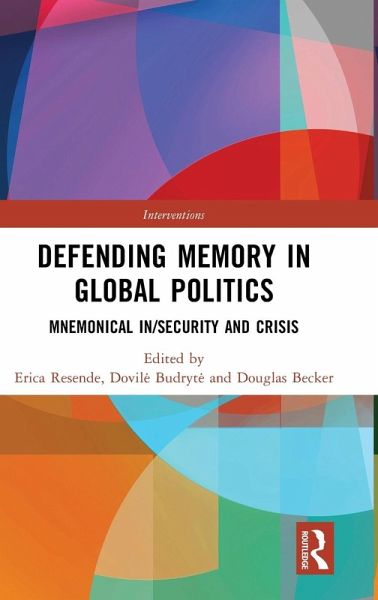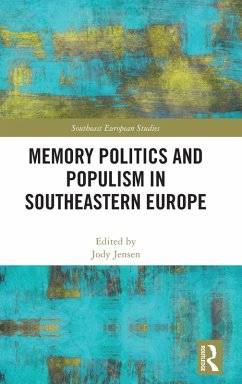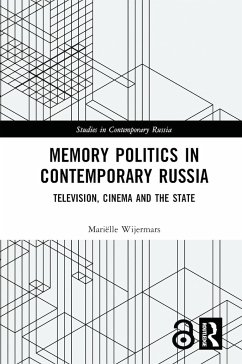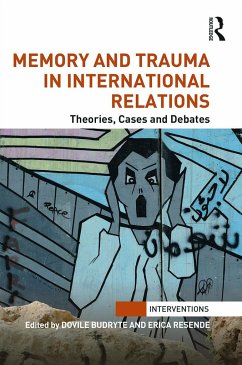
Defending Memory in Global Politics
Mnemonical In/Security and Crisis
Herausgeber: Resende, Erica; Becker, Douglas; Budryt¿, Dovil¿
Versandkostenfrei!
Versandfertig in 1-2 Wochen
179,99 €
inkl. MwSt.
Weitere Ausgaben:

PAYBACK Punkte
90 °P sammeln!
This book explores the securitization of memory in times of crisis using overlooked cases from the Global South and the Global North.














